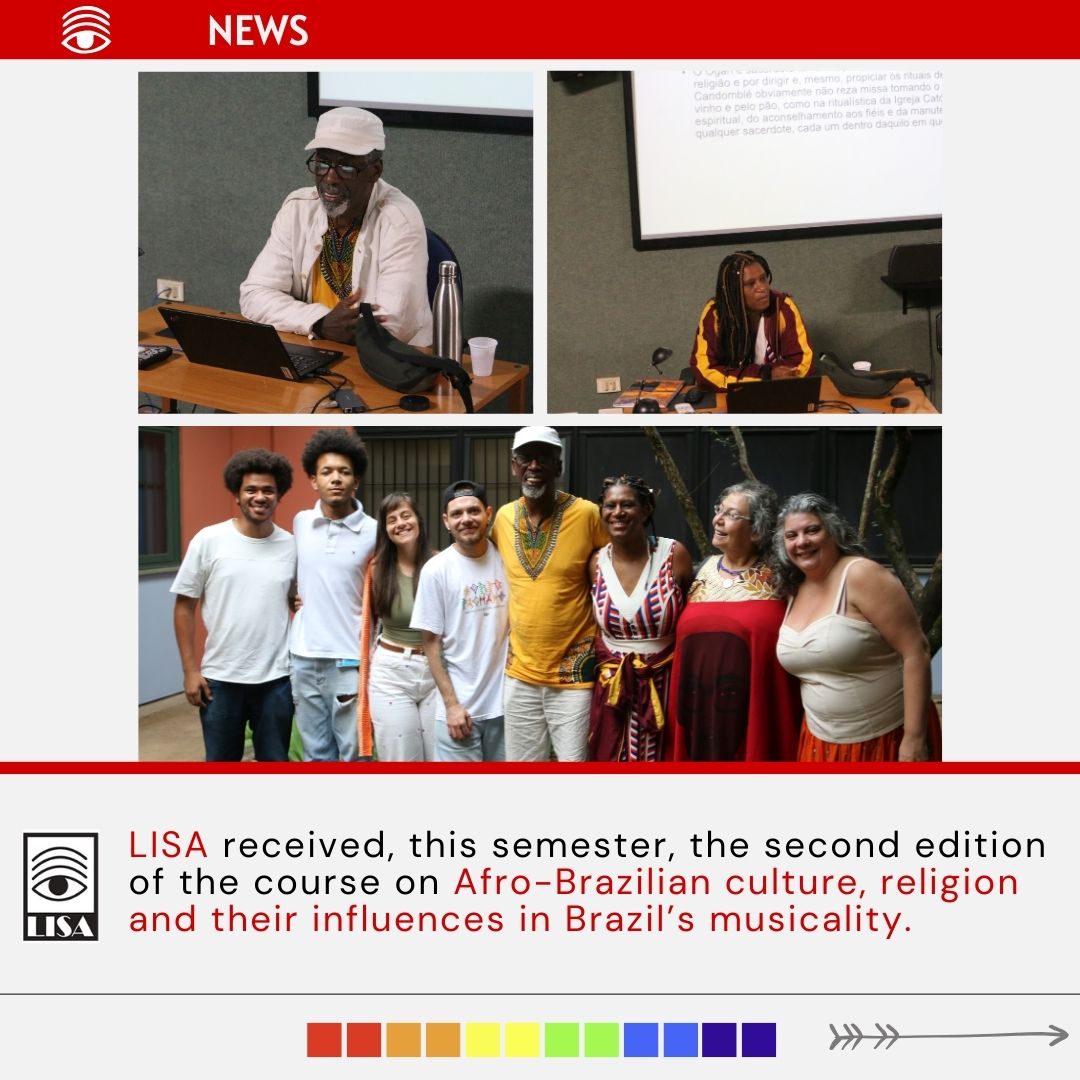
Authorship: Maykon Cruz Almeida • LISA Scientific Journalism Scholarship
Art/Dissemination: Carlos Eduardo Conceição • LISA Scientific Dissemination Scholarship
Reviews: Rose Satiko • LISA Coordinator | Vanessa Munhoz • LISA Communication
Published: 11/29/2024
The way of Alabê - Rhythms of the orixás and the Brazilian music" taught by Vitor da Trindade and Elis Trindade
The second edition of the course on culture and university extension entitled The way of Alabê - Rhythms of the orixás and Brazilian music, promoted and held at the Sound and Image Laboratory in Anthropology (LISA) and at the Popular Theatre Solano Trindade (TPST), with support from the Department of Anthropology at USP. The course was coordinated by Rose Satiko Gitirana Hikiji, professor at USP’s Department of Anthropology (DA-USP) and coordinator of LISA, and taught by Vitor Israel Trindade de Souza, musician, master in ethnomusicology from the School of Communications and Arts (ECA) of USP, president and artistic director of Teatro Popular Solano Trindade, and by Elis Sibere dos Santos Monte Trindade de Souza, Afro-Brazilian dance teacher, choreographer and cultural coordinator of Teatro Popular Solano Trindade.
The activities took place between 12/09 and 14/11 in a face-to-face manner and were based on the Raquel Trindade method, which is born with the ancestors of the Trindade family and unites theory and practice, and the motion proposal, sound and well-being as epistemology. The course addressed the rhythms of orixás, dances and manifestations, as well as the influence of these elements in Brazilian musicality, with reference to instrumentalists and priests of the orixás.
Ogans and Musicality
Vítor and Elis addressed the functions of the ogan, instrumentation, sound and dances in rituals, parties and ceremonies. The communications were based, especially, on the role of music and the ringtones in the cult to the orixás, its importance, particularities and complexities around the different sonorizations, ways of playing and occasions. Among the roles highlighted, there is the ogan alabê, which gives name to the course and also the book Oganilu, The Path of Alabê and O Ogan Alabê, Priest and Musician, authored by Vitor da Trindade. The Ogan alabê is responsible for the maintenance and conservation of sacred instruments, as well as for playing in moments of rituals and festivals.
As Ogan Alabê Omoloyê of the Ilê Axé Jagun, with the help of Elis, Vítor demonstrated some orixás touches, their sonority, particularities and representative forms of dances. Besides highlighting the uniqueness of the atabaque in ceremonies, because it is he who gives the course and rhythm to the cult, should be played only by specialized people and be careful and prepared for each type of event.
The initiative supports the dissemination of ancestral knowledge and African matrix, institutionalized by Law 10.639/03, which makes compulsory the teaching of "Afro-Brazilian History and Culture" in elementary and high school.
For more information about the activities, visit the site: https://sce.fflch.usp.br/node/5676. To know more about the Popular Theatre Solano Trindade, visit the social networks of the theater by link: TPST.


